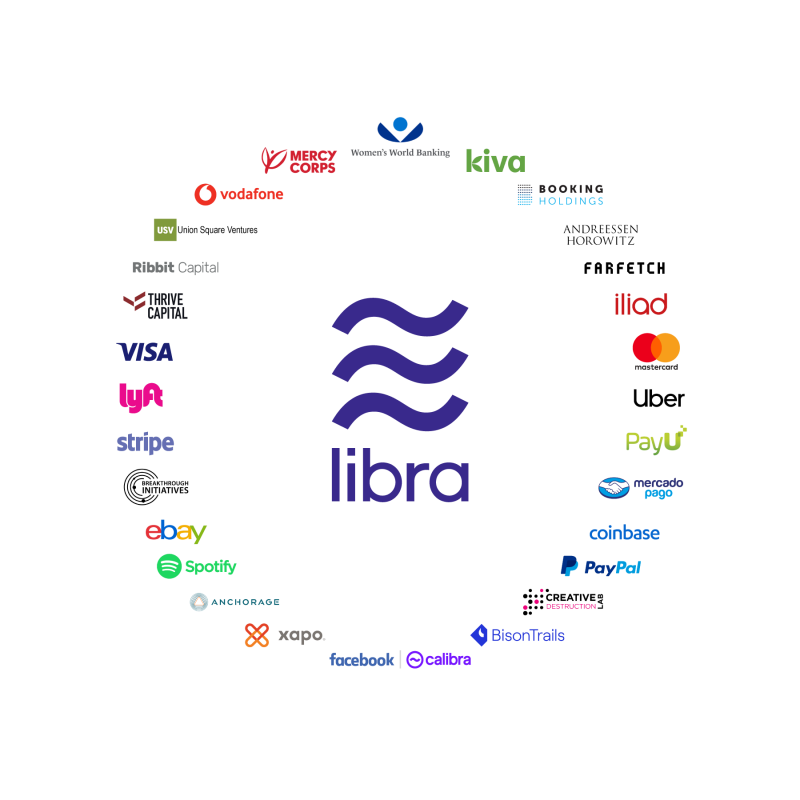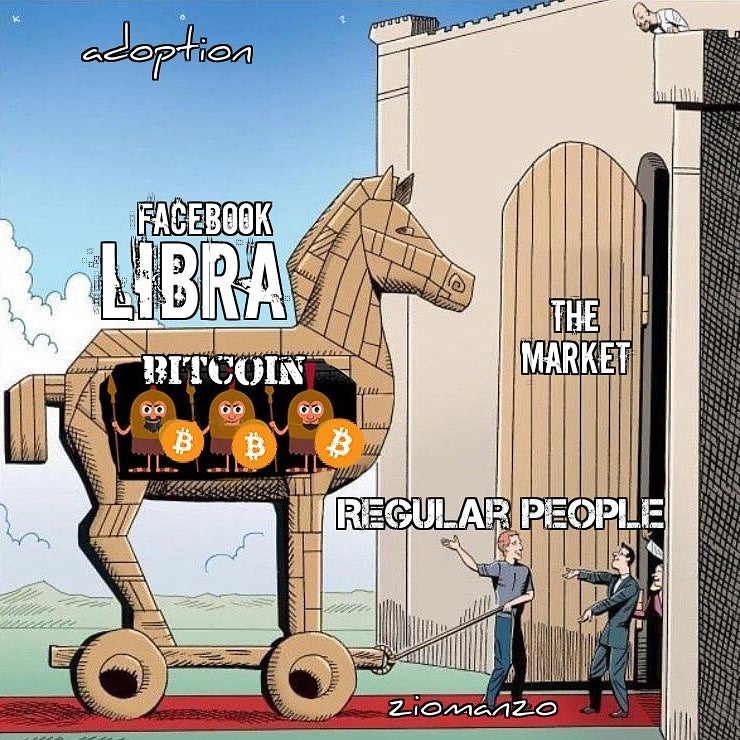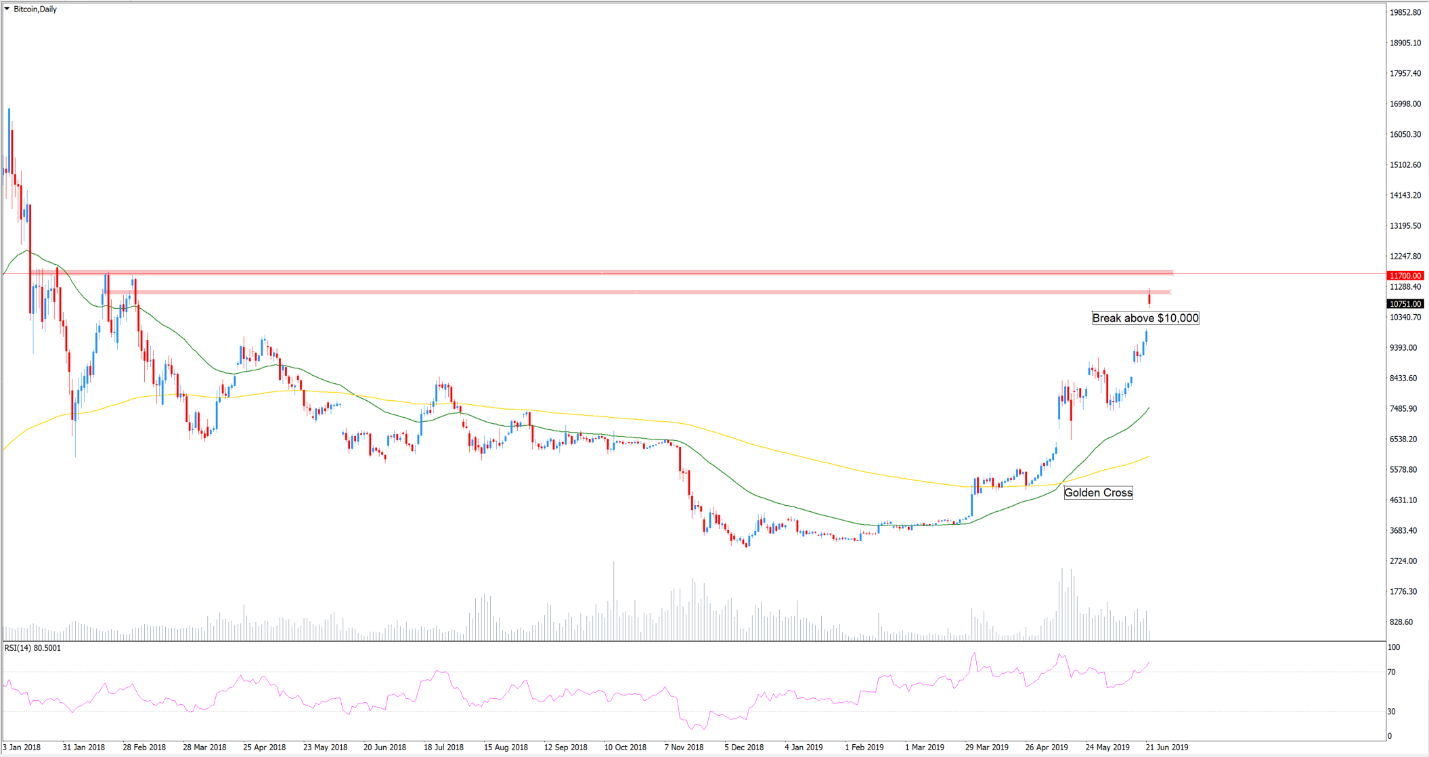Analysis
Facebook's Libra project, and what it means for Bitcoin
Mark Zuckerberg, CEO of Facebook, stated via a Facebook post that while Libra will be initially used as a way to send funds to anyone “at low to no cost,” the social media giant plans to incorporate further use cases that will include using the cryptocurrency for “paying bills,” “buying coffee” and “riding local public transit.” To enable this, Facebook has launched an independent subsidiary, Calibra, which will provide a wallet-like service to users wishing to send, spend and store Libra. It claims such data will be kept separately to the information you share on Facebook.
Decentralisation is a vital element of the crypto construct. Without it, the asset itself arguably isn’t a cryptocurrency. The independent Libra Foundation was created to achieve decentralised governance, with 28 founding members including Visa, Mastercard, Uber and, notably, Coinbase. Libra endeavours to reach 100 founding members by the launch date, with each founding member providing the financial reserves to back the project, as well as contributing to the blockchain’s security and scalability through powerful computing systems that will be used to validate the transactions on the blockchain.
To be considered in becoming what’s known as a node, the company or entity must meet two of three thresholds: $500 million in customer balances, US$1bil in market value, a reach of 20 million people a year, and/or be recognised as a top 100 industry leader by a group like the S&P.
Interestingly, many of the current founding members are currently competing with Bitcoin on a transactional level. Presumably, their intention behind backing the new Libra project is to cripple the growing market that Bitcoin continues to hijack from payment providers Visa and Mastercard.
Recently, Bitcoin’s adjusted daily transactional volume surpassed US$3bil, which, if reached consistently, would bring annualised Bitcoin volume to US$1tril. While Mastercard’s and Visa’s annualised volume sit around $4 and $8 trillion levels, respectively, this surge is an indication of the rapid growth in the utility of Bitcoin as a means of exchange.
This begs the question: What impact will the introduction of Libra do for the price and usage of Bitcoin?

"Source: Hacker Noon"
The Libra effect
While some aspects of Facebook's Libra vision may hit the nail on the head, the overall project is categorically different to Bitcoin and other cryptocurrencies. This is why the Libra project may act in Bitcoin's favour, rather than being detrimental to its growth.
Bitcoin was designed to be open, permission-less, borderless, censorship-resistant and immutable. Libra will almost certainly be none of these.
Libra will be pegged to a basket of fiat currencies that will be susceptible to inflation — vastly different to Bitcoin's deflationary and limited supply. To use Calibra, and subsequently Libra, individuals will need to provide KYC (know your clients) regulatory documents that need to be verified and approved. Currently, if an individual wanted to send Bitcoin overseas to a friend or family member, they only need a wallet address, which can be created in two minutes through blockchain.com without the requirement to verify their identification.
Each subsidiary such as Calibra will exist within different jurisdictions with different banking regulations. In other words, they’ll have their hands full in achieving global compliance and regulation. Many of these e-wallet providers will act as separate entities on behalf of Libra, and forefront the quest for licences and green lights from relevant regulatory bodies to operate as promised.
In its white paper, Libra states that users will pay a small fee for the transaction made, similar to Bitcoin. But the real difference lies in that you’ll be paying “rent” for holding your Libra in your wallet based on the “amount of time the account is stored and its size.” This will be done to cover the cost of data storage and outlaid after an expiration period.

"Source: Twitter user ziomanzo"
Bitcoin is often labelled a store of value due to its limited supply and deflationary nature, rather than just a form of digital currency. Libra addresses the concerns with the speculative nature of crypto-assets by having Libra physically backed and tied to fiat currencies. Those unwilling to use Bitcoin as a means of exchange due to the volatile fluctuations in price now have an alternative and, arguably, easier way to send their funds globally and purchase goods and services. Libra is attractive for its drive to become digital money, whereas Bitcoin is slowly drifting towards a different avenue in becoming a digital store of value. Both can flourish in tandem with each other.
Libra will face many hurdles in achieving adoption; however, there’s no better start to achieving this than having one billion active users already a part of the ecosystem that Facebook, Instagram and WhatsApp currently possess. Incorporating Libra into these existing applications and, therefore, creating and educating new users in the realm of cryptocurrency may only be beneficial for industry leaders Bitcoin and Ethereum. Alt-coins that offer similar fundamental characteristics to Libra will soon become nonexistent, though the introduction of crypto into the life of millions with mobile phones could propel them to venture further into the crypto space and towards coins with other use cases.
Coinbase's part to play
Coinbase, a US-based cryptocurrency exchange, is widely regarded as an industry leader for their forward-thinking nature, market reach and the regulatory framework they’ve achieved — in comparison to the regulatory struggles of other exchanges.
As a member of the independent foundation, Coinbase has the potential to act as the influential bridge between individuals, Libra and Bitcoin. According to its white paper, the Libra association "will encourage the listing of Libra on multiple regulated exchanges" to buy and sell Libra, as well as ensure people can exchange their local currencies for Libra as easily as possible. This is where Coinbase will become part of the fold. Using their reach and slick and easy-to-use interface, Coinbase can attract many of the potential users to exchange their fiat for Libra and, more importantly, Libra for Bitcoin. By allowing individuals to deposit Libra into their exchange, people are introduced to cryptocurrency, and the awareness of how it works and how to exchange it will increase tenfold.
The longer term
Year-to-date Bitcoin has seen a 190% rise, as the bulls have gained full control and haven’t shown any sign of slowing since April 2019. We saw a golden cross with the 50 EMA moving above the 200 EMA earlier in May this year — a bullish signal that indicates a reversal in the trend, with the market reacting by moving even higher since. At its current price of US$10,751, we're in the midst of key resistance levels of US$11,200 and $11,700 to contend with before this rocket is completely lit.

Cryptocurrency is now on the radar again, and there’s genuine excitement building in the market. The big players are entering the game, in what’s only beneficial for the price of Bitcoin in the longer term. But the fact of the matter is that Libra remains, at the absolute best, six months away from being introduced to the world. We may just have to wait for further indication before there’s a return of the parabolic moves we saw in late 2017.
A break above of $11,700 would be a great start.
The material provided here has not been prepared in accordance with legal requirements designed to promote the independence of investment research and as such is considered to be a marketing communication. Whilst it is not subject to any prohibition on dealing ahead of the dissemination of investment research we will not seek to take any advantage before providing it to our clients.
Pepperstone doesn’t represent that the material provided here is accurate, current or complete, and therefore shouldn’t be relied upon as such. The information, whether from a third party or not, isn’t to be considered as a recommendation; or an offer to buy or sell; or the solicitation of an offer to buy or sell any security, financial product or instrument; or to participate in any particular trading strategy. It does not take into account readers’ financial situation or investment objectives. We advise any readers of this content to seek their own advice. Without the approval of Pepperstone, reproduction or redistribution of this information isn’t permitted.